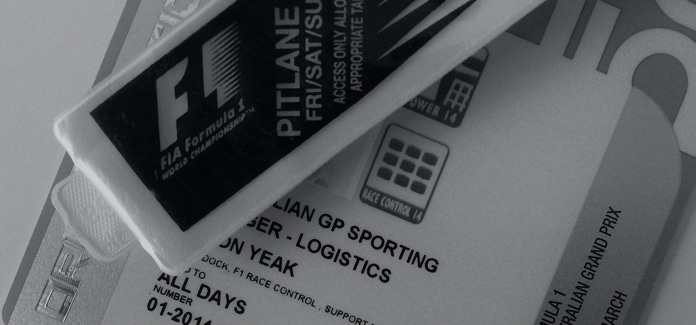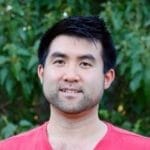
Will my social life disappear?
My social life morphed more than disappeared.
It’s true what they say about buying into a network when doing an MBA. Though I would probably rephrase it to, “buying” some of the best friends I could wish for… who also happen to be an amazing professional network. Some of my classmates have become lifelong friends that can be called on without a moment’s hesitation.
Do I have the answers? Definitely not. Do I have a network that collectively, has the answers? Yep. There is something inspiring about being in the company of experts in their respective domains.
I’ve always prescribed to the school of thought that you should surround yourself with people who are smarter than you and complement your skills.
This is exactly what I received through my program and has assisted me through my career transitions.
Beyond my immediate classmates there is the wider alumni network that I am now also starting to tap into more deeply. They say that the strength of a good program is often judged on the quality of its alumni network. The alumni provide a community of equally ambitions and inquisitive people. It really is an asset to be able to reach out to someone who has greater knowledge or experience in an area I am curious about.
Since graduating I have started an alumni Sports Industry Group with Francis, a classmate of mine who works in tennis. Our aim is to share knowledge and address challenges within the sports industry. Going beyond the fan perspective I guess you could say.
Lean on me
Leverage is not just for finance. My network also provides a ready source of mentors to draw upon. Finding good mentors was critical for me to move through the program, and even more so since graduating and no doubt for the years to come.
As a part-time student I quickly mixed with cohorts either side of my own intake, i.e. people who started before me and people who started after me. This is by virtue of the fact that part-time students have more flexibility in choosing when we do subjects. This was great for being able to draw on the experience of those who had already completed subjects I was interested in, or just “understood the system”.
Being able to pay it forward and provide insight to those who were earlier in their journey was also great to not only help others but also to force self-reflection on where I had reached. As I’ve mentioned, self-reflection was constant throughout the program and there was no better way to draw that out than to have a conversation with someone else about your own experiences and what you had gotten out of the ride so far.
I think this mentoring approach is a great principle to apply to my career – have mentors who are far ahead in their career journey and provide a big picture; mentors who are a little closer and can provide guidance in the nuts and bolts to me; and to
Pay it forward to others
The friendships stretched beyond the classroom. A tradition for my former workplace was taking on the Oxfam Trailwalker. This fantastic (and gruelling) event takes place across the world. Participants walk a 100km course in under 48 hours in support of the charity, Oxfam. Funds raised go to support the work of Oxfam such as addressing poverty.
I took this event on in 2015 with over twenty work mates. Just like in course work and career mentoring, my friends provided a good source of advice. Or more precisely, instilled the adequate level of fear into me pre-event that I became super paranoid about blister management. I took every measure possible to avoid blisters during the event, including changing shoes, socks and using talcum powder.
I can happily say I made it blister free through the whole event! Annoyingly, three days later I acquired two feet full of blisters playing a 40-minute game of basketball! A number of my friends were also volunteering at the finish line of the event and it was incredible to receive their messages of support throughout the entire event – except for the finish, by which time I had taken so long, it was dark and they had all gone home!
It was a pretty tough experience and having the moral support definitely helped me get through.
Beyond the trail many of my classmates supported with donations to Oxfam which is ultimately what the event is about. Some were even crazy enough to come along for the 50km training walks. It’s great to be able to return the favour and support (by donating to Oxfam, not by doing the 50km training walks) as other classmates took on the Trailwalker this year.
Are you a team player?
Our program provided a safe surrounding to test ourselves. We could “lose” $10M virtually or create an outrageous marketing campaign and test it in an environment that did not burn shareholders or relationships at work.
To succeed in the program, I think there is a level of emotional intelligence you either develop or quickly learn you don’t have! I learnt more about my own working style; the working styles of others that I click with; and my strengths and weaknesses within a group context.
Just like the situations themselves, my own style and the style of others had to adapt. For example, some groups would focus on the end outcome, a high grade at all costs. Tasks might be divided up based on strengths and each person works to their strength.
In other groups the experience was more of a focus, and group members would take on tasks they wanted to develop skills in, e.g. not confident public speaking? Guess what, you are now presenting our findings at the end of the assignment!
Each group and assignment would have different objectives and pressures. Sometimes there would be conflicting motivations and goals within the group. Especially regarding time available to commit – not unlike group tasks in the workplace. Through the experience, I believe we learnt to form, storm and norm much quicker! A skill that is very transferable and important outside of the classroom.
The entire experience helped to build relationships and leadership skills. I would often look at classmates and try to picture them in the future inspiring huge teams and our community. Many of them were already great leaders.
How to score free Grand Prix tickets
One of my first group assignments was for a marketing subject and our focus was on revitalising the confectionery brand Smarties. The timing of this assignment couldn’t have been any worse for me as it was smack bang during the lead up of the Australian Grand Prix.
Anyone who has worked in events management knows there are long days and sleepless nights in the lead up to a major event, with most of the work being done before the event itself. My group were hugely understanding of this, which I was so grateful for.
I recall after one very long Saturday at Albert Park turning up to school to join my group. I opened the door to what I can only describe as carnage. I’m sure my group would look back and laugh in agreement. There was paper everywhere, brand strategies scribbled on whiteboards, chocolate wrappers strewn across the floor (have to know your product, right?) and a general feeling of fatigue in the air. I recall asking how everyone was.
Turns out that was a dumb question.
We got through that assignment and no one in my group ever had a go at me for working ad-hoc hours… might have helped that I agreed to do our final presentation.
My Grand Prix group assignment experience had taught me taking care of your team members is critical! So, the following year when it was Grand Prix time again I offered all of my team free tickets to the event – not all benefits come back as professional advice in your network! The madness of the event came and went and my group pulled together a pretty good presentation for our macroeconomics assignment.
A few weeks later with some time to reflect, I thought it was odd that I never heard back from any of my group members regarding the tickets. I checked my email and confirmed that I definitely did not have any replies. I then noticed an email in my outbox… yep, turns out the email never left my outbox and hence no one saw the offer.
I promptly sent the email with an explanation to my group. Needless to say it was a pretty pointless offer by now, but it’s the thought that counts, right?! Apparently not, as Rishi is always quick to bring up this story and remind me of the missing tickets.
Who are your lifelong friends?
In the next and final edition of the Racetracks to Boardrooms series I ask myself, was it worth it and what now?
About the Author










